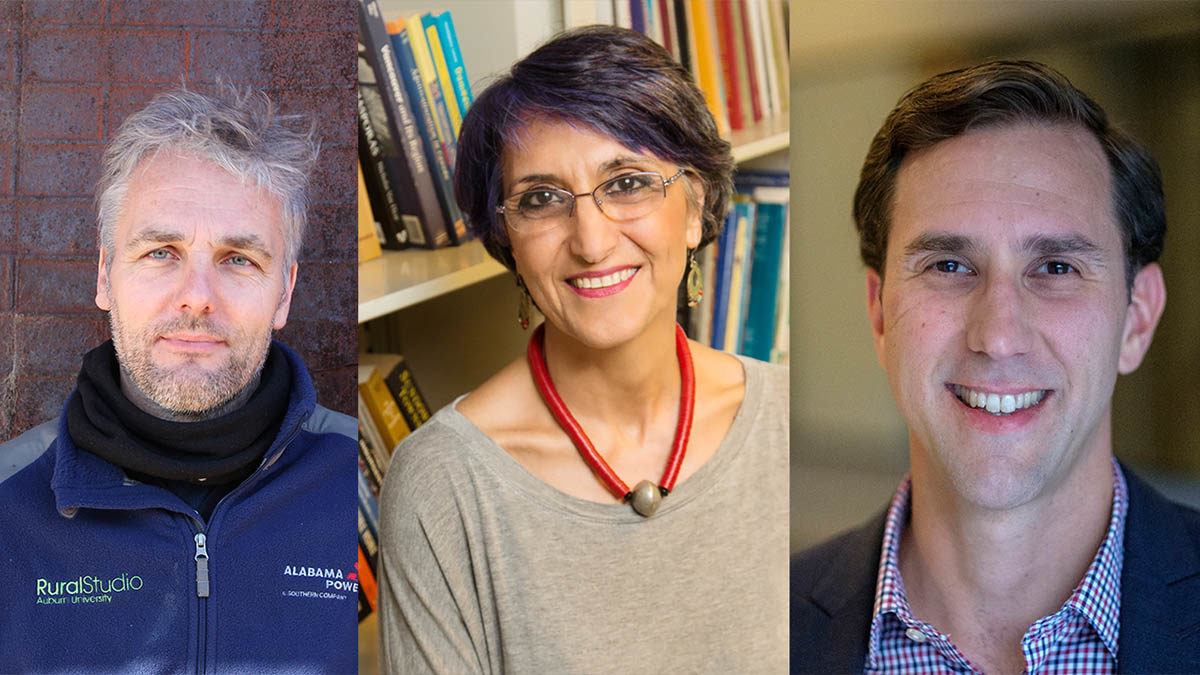

All GSD public events require registration via Zoom. Please visit the following link for information on how to register: https://www.gsd.harvard.edu/event/small-town-urbanism-in-the-21st-century-andrew-freear-faranak-miraftab-and-todd-okolichany/
Event Description
This program brings together three unique perspectives on the idea of “Small Town Urbanism”: Andrew Freear, Director of Rural Studio at Auburn University; Faranak Miraftab, Professor of Urban and Regional Planning at the University of Illinois, Urbana-Champaign; and Todd Okolichany, Director of Planning and Urban Design for the City of Asheville, North Carolina. The panel will be moderated by GSD faculty members Eve Blau and Diane Davis.
Climate change, the pandemic, telecommuting, and accelerating land costs in large cities have fueled a slow but noticeable relocation of people and services to ex-urban locales. The retreat from large cities offers opportunities to design and plan for rural and regional locations that have routinely been overlooked by investors and design & planning professionals alike. In order to do so, we need a better understanding of the major social transformations, spatial conditions, employment challenges, governing capacities, land market logics, and ecological circumstances in those smaller cities and towns that form the territorial landscape outside the large metropolises that have garnered so much attention in the contemporary `urban age.’ Recent debates in geography, sociology, and urbanism have sought to question the conceptual significance of the rural-urban divide, a move that may make sense in refocusing attention on the ways that resource extraction and other activities in the urban “hinterlands” are central to processes of urbanization. Yet the embrace of such a posture can have the unintended effect of erasing small towns from the collective imagination of urban planners, architects, and urban designers. Even among those who purposefully turn their attention to the countryside, as with Rem Koolhaas’s newest experimental foray, the tendency is to define this rather abstract territorial domain as everything that is “non-urban,” and for some, to see it as an open territory for “rationalization….with fantasies of automation and largescale visionary transformations” (Bathla, 2020: 946). But small towns need examination in their own terms, not as sites to be eclipsed in the search for new territorial logics.
This event is made possible by the 50th Anniversary of Urban Design Lectureship Fund.